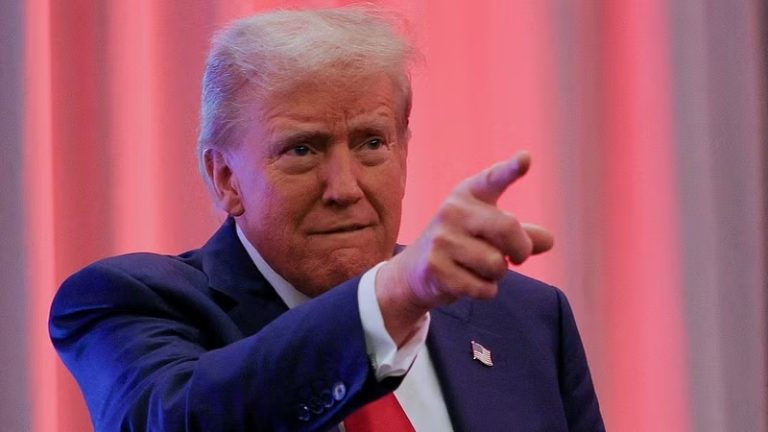U.S. Adviser Advocates for UK Alignment with American Trade Model
A senior economic adviser to U.S. President-elect Donald Trump, Stephen Moore, has urged Britain to prioritize trade alignment with the United States over deeper ties with the European Union. Speaking on BBC radio, Moore critiqued the EU’s economic approach and outlined potential advantages for the UK in adopting a U.S.-centric trade strategy.
EU’s “Socialist Model” Criticized
Moore characterized the EU as adhering to a “socialist model,” which he argued contrasts starkly with the American emphasis on economic freedom. He suggested that aligning more closely with U.S. economic principles could bolster Britain’s prospects for securing a free trade agreement with the United States.
Strategic Choice for Britain
According to Moore, Britain faces a strategic decision between two distinct economic paths. He stated, “The UK is kind of caught in the middle of these two forms of economic model, and I believe that Britain would be better off moving towards more of the American model of economic freedom.”
Incentive for U.S.-UK Trade Deal
Moore linked Britain’s economic stance to the Trump administration’s enthusiasm for a bilateral trade deal. He argued that adopting an American-style approach to economic policy would encourage the U.S. to expedite a trade agreement with the UK.
Bank of England Governor Calls for EU Ties
Contrasting with Moore’s advice, Bank of England Governor Andrew Bailey emphasized the importance of improving Britain’s relationship with the EU. Speaking on Thursday, Bailey urged the newly elected Labour government to rebuild connections with the bloc, even as the government has ruled out rejoining the single market or customs union.
Labour Government’s Stance on EU Relations
Prime Minister Keir Starmer has expressed a desire to enhance trade and diplomatic ties with the EU. While rejecting the idea of rejoining key EU frameworks, Starmer’s administration aims to repair relations strained since Brexit.
Finance Minister Advocates for “Reset”
Finance Minister Rachel Reeves echoed Bailey’s sentiments, calling for a “reset” in Britain’s relationship with the EU. Speaking at the same event, Reeves highlighted the importance of rebuilding economic and diplomatic bridges with Europe.
Collaborating with the U.S.
Reeves also expressed optimism about deepening trade ties with the United States. She noted her anticipation of working closely with the incoming Trump administration to forge stronger bilateral economic partnerships.
Implications of Trump’s Election Victory
While Bailey refrained from directly addressing Trump’s election win, his remarks reflected the broader uncertainty among global policymakers. Trump’s trade policies, including the prospect of significant tariffs on imports, have prompted nations to reassess their economic strategies
Balancing U.S. and EU Relations
Bailey and Reeves’ comments underscore the delicate balance Britain must maintain between fostering ties with the EU and pursuing a robust partnership with the U.S. Both relationships are seen as vital to the UK’s economic stability and growth.
Double-Digit Tariffs Loom Large
The potential for double-digit U.S. tariffs on imported goods poses a significant challenge for Britain and other trading partners. Policymakers are keenly aware of the need to navigate these complexities in future trade negotiations.
Rebuilding Post-Brexit Ties
For Britain, recalibrating its trade relationships has become a critical priority following its departure from the EU. Both government officials and economic advisers recognize the importance of forging strong alliances on both sides of the Atlantic.
U.S.-UK Free Trade Deal as a Priority
Moore’s comments signal the Trump administration’s interest in a free trade agreement with the UK, provided Britain aligns more closely with U.S. economic practices. Such a deal could offer mutual benefits but requires significant adjustments from Britain.
EU Relations in the Spotlight
The Labour government’s emphasis on mending EU ties reflects a recognition of the bloc’s economic importance. Improved relations could facilitate smoother trade flows and mitigate post-Brexit disruptions.
Economic Freedom as a Deciding Factor
Moore’s advocacy for economic freedom as a guiding principle highlights the ideological divide between U.S. and EU approaches. His remarks suggest that adopting American-style policies could have far-reaching implications for Britain’s economic trajectory.
Labour’s Pragmatic Approach
By prioritizing practical improvements in EU relations while exploring opportunities with the U.S., the Labour government aims to strike a balance that safeguards Britain’s economic interests.
Global Implications of Trump’s Policies
Trump’s election has introduced new dynamics into international trade. Countries are bracing for potential shifts in U.S. policy, including increased tariffs, which could reshape global economic relationships.
UK’s Strategic Pivot
Britain’s ability to navigate these competing pressures will play a pivotal role in its post-Brexit recovery. Aligning with the U.S. while rebuilding EU ties requires careful diplomacy and strategic foresight.
A New Era of Trade Relations
As Britain redefines its global role, its choices will significantly impact its economic future. Moore’s call for closer U.S. alignment presents one vision, while the Labour government’s EU-focused approach offers another.
Balancing Competing Priorities
Ultimately, Britain must reconcile these competing priorities to ensure long-term economic prosperity. The decisions made in the coming months will shape its position on the global stage for years to come.

